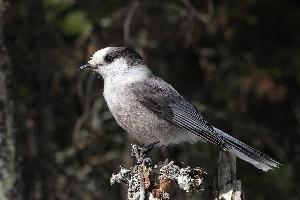
Weights and measures
| Length | 50 cm |
|---|---|
| Weight | 1,5 kg |
| Wingspan | 1 m |
Animal description
The Common Raven (Corvus corax) is a captivating bird species renowned for its intelligence, adaptability, and the deep cultural significance it holds across various civilizations throughout history. As one of the largest members of the genus Corvus, the Common Raven boasts a robust and versatile physique that has enabled it to inhabit a diverse range of environments across the Northern Hemisphere, including forested areas, mountains, deserts, and Arctic tundra.Physically, the Common Raven is a striking bird, easily recognizable by its all-black plumage that exhibits a remarkable sheen, often reflecting bluish or purplish hues in sunlight. Adult ravens typically measure between 54 to 67 centimeters in length, with a wingspan that can reach up to 150 centimeters, making them one of the largest perching birds. Their powerful bills are thick and slightly curved, adept at manipulating a variety of food sources, while their strong legs and talons enable them to walk and grasp objects with ease.
One of the most notable features of the Common Raven is its intelligence. These birds are capable of complex problem-solving, use of tools, and planning for future events, which is considered rare among non-human animals. Ravens have been observed using sticks to extract insects from bark, dropping nuts on roadways to crack them open with passing vehicles, and even using snow as a tool for sliding entertainment. Their social behavior is equally fascinating, characterized by playful interactions, aerial acrobatics, and a complex system of vocalizations that includes mimicking sounds from their environment.
The diet of the Common Raven is omnivorous and highly varied, reflecting their adaptability. They feed on a wide range of items, including insects, grains, fruits, small animals, carrion, and garbage. This varied diet has allowed them to thrive in many different environments and contributes to their widespread distribution.
Ravens are monogamous birds, often forming long-lasting pair bonds. Their nests are large structures built with sticks and lined with softer materials, usually placed high on cliff ledges or in tall trees. Both parents are involved in raising the young, which showcases their strong social bonds and cooperative behavior.
Culturally, the Common Raven holds a significant place in mythology, folklore, and art. In many cultures, they are revered as symbols of intelligence and foresight, while in others, they are associated with death and misfortune. This duality reflects the complex relationship between humans and these enigmatic birds throughout history.
In conclusion, the Common Raven (Corvus corax) is a remarkable bird, not only for its physical prowess and adaptability but also for its intelligence and social complexity. Its presence across diverse landscapes and in the cultural narratives of various societies speaks to the deep connection and fascination humans have with this extraordinary avian species.
Map of occurrence

Similar Animals
New photos of animals
Top 10 animals
- Dolphin gull (Leucophaeus scoresbii)
- Diana monkey (Cercopithecus diana)
- Moustached guenon (Cercopithecus cephus)
- Galápagos tortoise (Geochelone nigra complex)
- Stone loach (Barbatula barbatula)
- Japanese macaque (Macaca fuscata)
- Russian tortoise (Testudo horsfieldii)
- Greek tortoise (Testudo graeca)
- Common flying dragon (Draco volans)
- Vendace (Coregonus albula)


